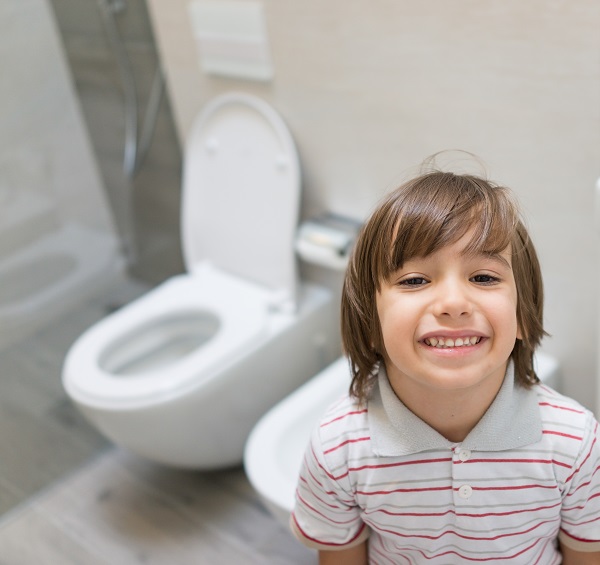It’s a subject that’s best kept behind closed doors.
Poop.
As parents, we live for the day when our kids are potty trained—“and yes! No more changing poopy diapers!”
For the first couple of years of our child’s life, we were intimately connected with how our child’s poop looked, smelled and—in a few horribly memorable instances—exactly how it felt.
But guess what, parents? It’s not over quite yet. “As they say, everybody poops,” laughed Dr. Vita Goei, a pediatric gastroenterologist at the Children’s Hospital of Georgia. “And your child’s poop is one way you can tell if your child is eating a balanced diet and getting enough fluids.”
Not to say that you should be peeking into the toilet every time your child goes. “Sometimes kids don’t flush, so you do get a clue then. But if your child is going to the bathroom and pooping once every other day to twice a day and isn’t complaining of pain or other problems, you don’t need to worry,” said Dr. Goei. “But if kids do start to complain of pain, have a poor appetite, are more irritable than usual, aren’t sleeping well or aren’t as active, poop is one of the things you can look into.”
So cue the poop diaries. Here’s what you should look for, according to the Bristol stool scale:
If your child’s poop looks like: Hard nuts or peas, or a cluster of lumpy grapes
Possible diagnosis: Constipation
“I have this little saying: All abdominal pain is constipation until proven otherwise,” said Dr. Goei. Constipation can be a common issue in kids. A primary reason? Our typical American diet, which can be loaded with white bread, white rice, pasta and desserts. Another reason can be that kids are shy about doing “number two” any place but home and, as a result, hold it. “The longer the stool sits in the colon, the harder it’s going to get. Then the next time they go, the stool is hard and painful. It’s a vicious cycle,” said Dr. Goei.
If your child does have constipation, your doctor may prescribe a stool softener or stimulant to help clear out the colon. And once that happens, it’s important for kids to eat more fiber, such as fruits and vegetables and whole-grain foods. Drinking enough liquid is also important, especially if you’re eating more fiber, and water should be your go-to, not soda, sweet tea or juice. (Try diluted juice or fruit-infused water if your kids balk.)
Kids who have suffered from chronic constipation may have lost the natural urge to go, so it’s important to retrain them. Thirty minutes after they have a meal, have them sit on the toilet for five to 10 minutes to take advantage of the gastrocolic reflex—in other words, your body’s reflex that says, what comes in must go out.
Sitting in the right position is also important. “Have you see the squatty potty?” said Dr. Goei. It’s OK to laugh, but any stool that places the feet up so that thighs and knees are parallel to the hips or higher really works.
If your child’s poop looks like: Soft blobs, porridge or gravy
Possible diagnosis: Diarrhea
Diarrhea is less common in kids, but can be more of a concern. Common causes can include an infection or stomach bug. As long as diarrhea lasts for five days or less, parents shouldn’t worry. But if a child experiences repeated bouts of diarrhea or diarrhea that lasts past two weeks or has blood in the stool, that could be a sign of a larger issue and should definitely be checked out by a doctor.
Many people may not know this, but kids can also have irritable bowel syndrome or serious conditions such as Crohn’s disease, which can lead to chronic diarrhea. Lactose intolerance—caused by a lack of an enzyme to digest sugar in milk and dairy products—may also be an issue, especially for kids who are Asian or African American. Celiac disease, or an immunologic reaction to wheat, is another growing concern.
If your child’s poop looks like: Sausage, smooth and soft or with slight cracks on the surface
Possible diagnosis: Congratulations, your child’s poop is normal!
If you see this type of poop in your toilet, it’s a sign that your child is eating a well-balanced diet and drinking plenty of fluid. It may feel weird to congratulate yourself on your child’s poop, but as a determinant of health, this kind of poop means you’re doing something just right.
From newborns to adolescents, kids come first at Children’s Hospital of Georgia. To find out more visit augustahealth.org/chog or call 706-721-KIDS (5437) to make an appointment for your child today.




